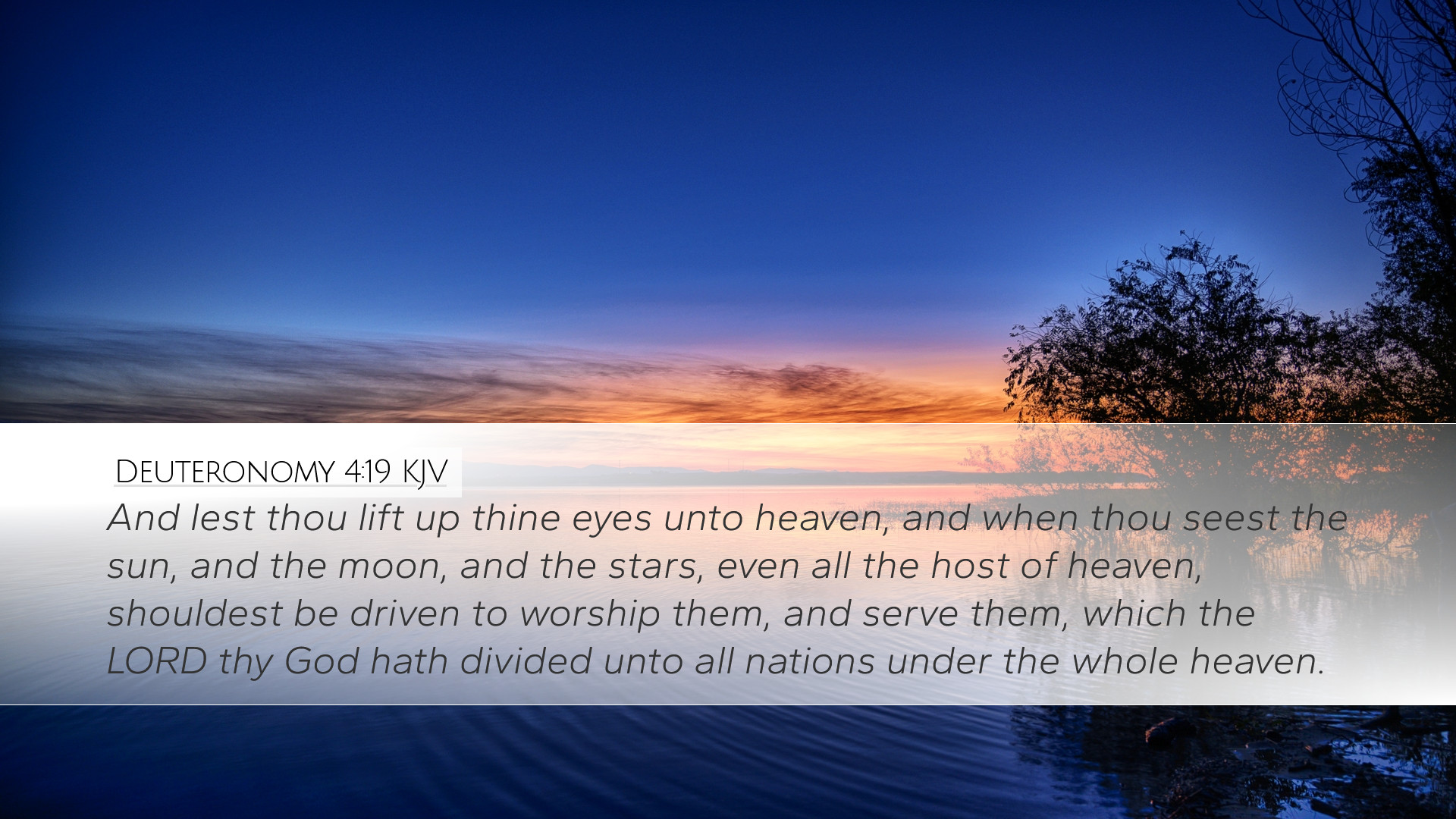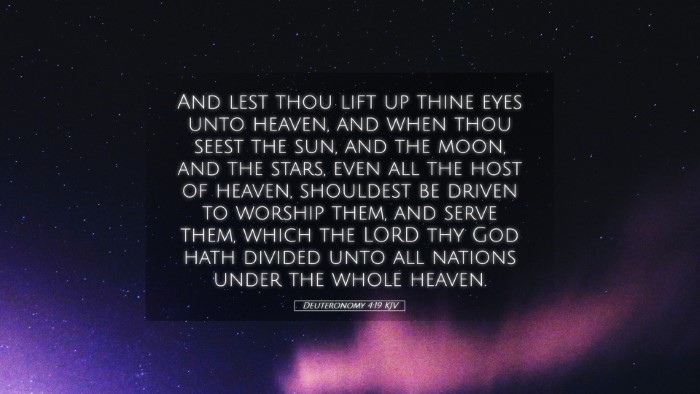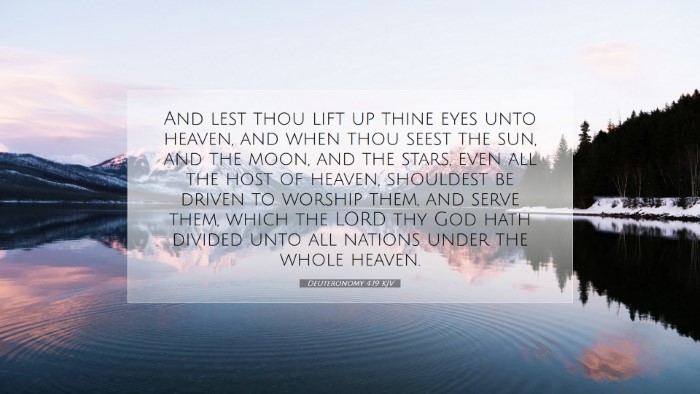Commentary on Deuteronomy 4:19
Verse: "And lest thou lift up thine eyes unto heaven, and when thou seest the sun, and the moon, and the stars, even all the host of heaven, shouldest be driven to worship them, and serve them, which the Lord thy God hath divided unto all nations under the whole heaven."
Introduction
This verse serves as a crucial warning against idolatry and the misplacement of reverence towards celestial bodies. In the context of Deuteronomy, Moses is addressing the Israelites, reminding them of their covenant relationship with God and the importance of worshiping Him alone. The presence of this caution illustrates the ongoing struggle against syncretism and the temptation to worship created things rather than the Creator.
Understanding Heavenly Worship
According to Matthew Henry, this verse emphasizes the dangers of idol worship, where the heavens might draw the Israelites’ worship away from God. He elucidates that the sun, moon, and stars, while magnificent and significant, are not objects of worship. Instead, they serve a purpose as signs that guide humanity but should never replace the creator in the hearts and minds of believers.
Symbolism in Nature
Albert Barnes notes that the imagery of looking up at the heavens encapsulates humanity’s natural tendency to revere what is above them. He points out the inherent danger in ascribing divine attributes to the created order, lest human worship be diverted from the one true God. Barnes warns that God has allowed these celestial bodies to exist, but they are intended to draw attention to His greatness rather than to be worshipped themselves.
Divine Sovereignty Over Creation
This verse asserts God’s sovereignty over all creation, as seen in the phrase "which the Lord thy God hath divided unto all nations under the whole heaven." Adam Clarke expounds on this by mentioning that God’s allocation of the stars and planets to the nations implies His reign over all humanity. Instead of fostering worship, the celestial bodies should inspire a sense of awe leading to a greater acknowledgment of God’s power and authority.
Reflected Glory
Further, Clarke elaborates on the notion of celestial bodies reflecting God's glory. Rather than seeking to worship the created, humanity is invited to use creation as a mirror that points back to the Creator. This understanding reinforces the role of nature in enhancing our relationship with God, drawing us into deeper reverence and worship of Him alone.
Implications for Today
The message in Deuteronomy 4:19 resonates profoundly in contemporary times, where materialism and various forms of idolatry can easily capture human hearts. Henry indicates that modern believers must also guard against elevating anything above God, be it technology, celebrity, or worldly achievements. The temptation remains for people to seek fulfillment in earthly things, thereby neglecting their duty to worship the one true God.
Applied Theology for Worship
-
Guard Against Idolatry: Congregations are reminded to evaluate what occupies their attention and reverence.
-
Understanding Creation: Encourage a theology of creation that highlights God's purpose behind the natural world, prompting admiration for His greatness.
-
Life of Worship: Teach that worship should not be confined to communal gatherings but be integrated into daily life, recognizing God’s presence in all creation.
Conclusion
Deuteronomy 4:19 serves as a potent reminder to the people of God to maintain fidelity in their worship and to acknowledge the greatness of God above all creation. The warnings presented in this verse through the lens of commentaries reveal timeless truths that resonate with the challenges of today’s society. As pastors, students, theologians, and Bible scholars reflect on this passage, may they cultivate a deeper understanding of worship in spirit and truth, guarding against the allure of idolatry.


